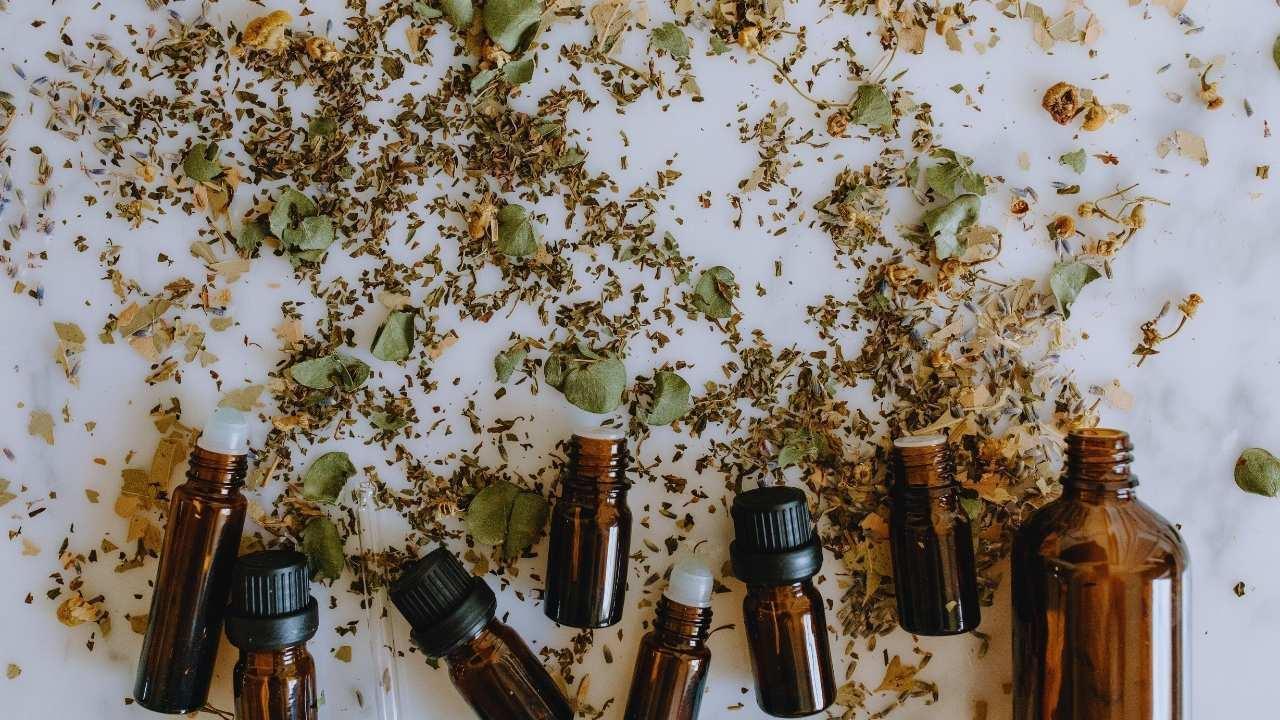You have not yet added any article to your bookmarks!

Join 10k+ people to get notified about new posts, news and tips.
Do not worry we don't spam!

Post by : Anis Farhan
Natural remedies and traditional medicine are witnessing a global resurgence in popularity. In an age dominated by advanced pharmaceuticals and high-tech medical interventions, a growing number of individuals are seeking alternative, holistic approaches to health. This revival is driven by rising awareness of side effects associated with modern drugs, a desire for preventive healthcare, and renewed interest in cultural and indigenous knowledge.
Across Asia, Europe, and the Americas, centuries-old practices are being re-explored, documented, and incorporated into everyday wellness routines. From herbal treatments and acupuncture to Ayurveda and traditional Chinese medicine, these practices offer natural, minimally invasive solutions aimed at improving overall health and well-being.
Natural remedies are increasingly attractive for several reasons:
Fewer Side Effects: Many herbal and plant-based treatments have mild effects compared to synthetic medications.
Preventive Health: Traditional remedies often focus on prevention rather than just treating symptoms.
Holistic Approach: Treatments aim to balance physical, mental, and emotional health.
Accessibility: Many remedies use locally available ingredients, making them cost-effective.
This combination of safety, accessibility, and comprehensive care has encouraged urban and rural populations alike to revisit natural solutions in daily healthcare.
Several traditional medical systems are regaining attention:
Ayurveda: Originating from India, Ayurveda uses herbs, oils, dietary guidance, and lifestyle practices to maintain balance in the body and mind.
Traditional Chinese Medicine (TCM): TCM incorporates acupuncture, herbal formulas, Tai Chi, and dietary therapy to restore harmony between the body’s energy channels.
Unani Medicine: Focused on balancing bodily humors, Unani uses natural ingredients, massages, and dietary recommendations.
Homeopathy: Although controversial, homeopathy is preferred by some for its highly diluted natural remedies targeting specific ailments.
Indigenous Herbal Practices: Across the globe, indigenous communities continue to utilize local plants, roots, and leaves for healing.
These systems emphasize individualized treatment, prevention, and restoring harmony, contrasting with symptom-focused modern medicine.
Herbs and plant-based treatments are central to traditional medicine:
Turmeric: Known for anti-inflammatory and antioxidant properties, widely used in India and Southeast Asia.
Ginger: Relieves nausea, aids digestion, and reduces inflammation.
Ginseng: Boosts energy and immunity in Asian traditional practices.
Aloe Vera: Used for skin ailments, burns, and digestive health.
Chamomile and Peppermint: Common in teas to reduce stress, improve digestion, and enhance relaxation.
These remedies are incorporated into daily life, often in the form of teas, oils, pastes, or supplements, providing gentle support to overall health.
Natural remedies are increasingly being integrated into contemporary healthcare systems:
Complementary Therapies: Hospitals and clinics offer acupuncture, massage, and herbal therapies alongside conventional treatments.
Wellness Products: Dietary supplements, essential oils, and herbal skincare products are booming in the consumer market.
Research and Standardization: Scientific studies are validating traditional treatments, promoting evidence-based integration.
Digital Access: Apps, online tutorials, and telemedicine platforms allow global access to traditional medicine knowledge.
This integration demonstrates a bridge between ancient wisdom and modern science, enhancing patient choice and holistic care options.
The comeback of natural remedies is also driven by cultural pride and awareness:
Preserving Heritage: Communities are reviving traditional knowledge to maintain cultural identity.
Educational Programs: Universities and wellness institutes offer courses on herbal medicine, acupuncture, and Ayurveda.
Media Influence: Documentaries, social media, and lifestyle platforms promote holistic wellness and natural remedies.
Celebrity Endorsements: Public figures advocating herbal treatments increase visibility and acceptance.
Cultural engagement ensures these practices remain relevant and accessible in modern lifestyles.
Natural and traditional remedies are increasingly sought for managing chronic conditions:
Arthritis and Joint Pain: Turmeric, ginger, and massage therapies provide relief and improve mobility.
Digestive Issues: Herbal teas, fermented foods, and dietary adjustments support gut health.
Stress and Anxiety: Meditation, yoga, and herbal supplements like chamomile or valerian root aid mental well-being.
Skin Conditions: Aloe vera, neem, and honey-based treatments help manage acne, eczema, and burns.
While not replacements for all modern treatments, these remedies often complement conventional therapies, enhancing quality of life.
Research into traditional medicine has grown exponentially:
Studies on turmeric’s curcumin compound confirm anti-inflammatory and antioxidant properties.
Clinical trials on acupuncture demonstrate efficacy in pain management, nausea, and migraines.
Research on herbal extracts supports their role in immunity, digestion, and metabolic health.
Scientific validation increases credibility, encourages adoption, and ensures safer, standardized use of natural remedies.
Despite popularity, there are challenges:
Quality Control: Variations in herb quality and purity can affect effectiveness.
Dosage and Safety: Misuse or overuse of natural remedies may lead to adverse effects.
Regulatory Oversight: Many traditional products lack standardized regulation, posing potential risks.
Integration with Modern Medicine: Patients must communicate with healthcare providers to avoid drug interactions.
Awareness, research, and proper guidance are essential to ensure safe and effective use of natural remedies.
The global wellness market reflects the resurgence of traditional medicine:
Herbal supplements and remedies account for a multi-billion-dollar industry worldwide.
Organic and natural personal care products see increasing demand.
Wellness tourism, including Ayurveda retreats, herbal spas, and holistic centers, attracts international travelers.
Countries are promoting indigenous knowledge as part of healthcare exports and economic growth strategies.
These trends demonstrate the economic, cultural, and health impact of the natural remedy revival.
Technology facilitates access to traditional medicine knowledge:
Online Consultations: Practitioners offer virtual guidance for herbal treatments and therapy sessions.
Mobile Apps: Provide step-by-step remedies, ingredient tracking, and wellness routines.
E-Commerce: Global platforms enable purchase of authentic herbal products and supplements.
Social Media and Influencers: Highlight benefits, DIY remedies, and cultural heritage, boosting adoption.
Digital platforms bridge geographical gaps, making traditional practices more accessible to urban and global populations.
The resurgence of natural remedies is likely to continue due to:
Rising awareness about preventive healthcare.
Increased demand for holistic and non-invasive treatments.
Scientific validation of ancient practices.
Integration into modern medical systems and wellness tourism.
Growing interest in sustainable, plant-based health solutions.
As the world balances modern medicine with holistic approaches, natural remedies are set to play a larger role in personal and public health strategies.
Natural remedies and traditional medicine are no longer just relics of the past; they are an integral part of modern wellness culture. By combining ancient wisdom with scientific validation, they provide effective, accessible, and holistic solutions for health maintenance and chronic condition management.
The revival of these practices reflects a global shift toward preventive healthcare, self-awareness, and sustainability. Whether through herbal teas, acupuncture, Ayurveda, or indigenous treatments, natural remedies offer practical and culturally rich alternatives in today’s fast-paced, modern world.
As the movement continues to gain momentum, it holds promise not only for individual health but also for cultural preservation, economic growth, and sustainable healthcare solutions worldwide.
This article is for informational purposes only. The content reflects general trends and practices as of 2025. Natural remedies and traditional medicine should not replace professional medical advice. Consult qualified healthcare providers before starting any new treatment or therapy.










Richard Liu launches $690M eco-yacht brand Sea Expandary
JD.com founder Richard Liu invests $690M in Sea Expandary aiming to produce affordable green yachts

China imposes export curbs on 40 Japanese firms over military ties
Beijing restricts dual-use exports to Japanese companies, citing remilitarization concerns, promptin

Malaysia moves to protect Musang King durian amid China impostors
Authorities safeguard Malaysia’s Musang King brand as durians from Thailand and Vietnam are being fa

UAE field hospital in Gaza hosts WHO delegation to review aid
WHO delegation visits UAE field hospital in Gaza to assess medical support, review patient care, and

Trump highlights economic gains in State of the Union speech
US President Donald Trump praised his economic record in the State of the Union as he seeks politica

Bahrain Health Minister Meets Child Psychiatry Association Leaders
Discussions focused on strengthening child and adolescent mental health services and expanding preve